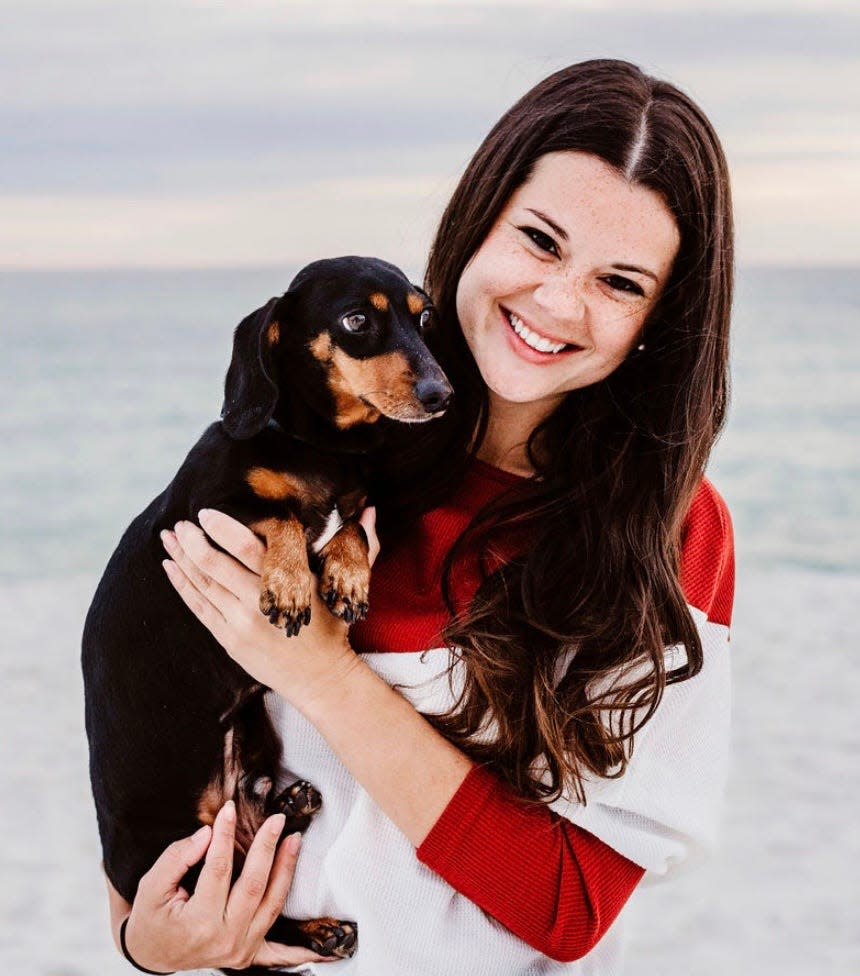PAWS lowers adoption fees for cats, kittens to help overpopulation at shelter | Guestview
Animal shelters around the U.S. are struggling right now — and the Panhandle Animal Welfare Society is no exception.
Every spring, the unaltered homeless and stray cats in our communities produce hundreds upon thousands of kittens. Many of these kittens are brought into animal shelters, where we will divert them to foster homes until they are old enough to be adopted.
Other kittens grow up a bit hidden in areas by their mother. In June, all these young kittens come crawling out (quite literally) and are ready to find their adoptive homes. The issue then becomes, we have hundreds of kittens in our community that are ready to be adopted. Where do we put all of them? How do we get them all adopted? Do we have enough staff to care for them all?

New art exhibit: 'We Were Sheltered' showcases adopted animals from PAWS. Where to view it?
Dusty Ricketts: Animals deserve better from humans | Opinion
The Panhandle Animal Welfare Society (PAWS) has teetered dangerously close to having zero available kennels, which becomes an issue as a municipal shelter that receives calls daily for pets in need of our help. We must have somewhere to put these cats that need our care at the drop of a hat. To help clear some space and get these cats into homes, we have reduced the adoption fees for all our felines by 50%, meaning every cat and kitten is just $25 to take home.
Every pet is spayed/neutered, microchipped and up to date on vaccines and preventions. Still, cats and kittens are not getting adopted as quickly as we had hoped. We also have been fortunate enough to have amazing rescue partners that have been able to take some of these pets in their shelters.
The other challenge we face now with having a massive number of kittens in the shelter is the lack of staff. PAWS, as well as many organizations, have struggled to recover post-COVID for staff recruitment and retention. Our passion and rewarding work is what carries us, but it is certainly a weight that can be overwhelming with three times the usual number of kittens to clean, feed and care for.
We are also seeing a lack in volunteer interest and reliability. Our team is tired. Our volunteers are tired. But the community can help!
As a nonprofit organization, PAWS relies heavily on our community for support. We are always in need of volunteers to help clean, feed and socialize (yes, just play) with our felines. Every volunteer makes a huge difference for our team. You can even sign up to be a temporary foster home for our pets in need. We are still consistently seeing small, young kittens come into the shelter, and at this time do not see an end in sight. You can sign up to be a volunteer at www.paws-shelter.org/get-involved.
We also run very low on supplies during this time of year. If you are able to donate items such as cat litter, fleece blankets, wet food, kitten milk replacement, kitten nipples and bottles, we absolutely need it! Donations can be received in person at our shelter or can be ordered through our Amazon wish list at www.paws-shelter.org/donate.
And lastly, and probably the most important way our community can help is by spaying and neutering your pets. An unaltered female cat can produce up to three litters per year. An average litter size is about four to six kittens. A single unspayed female and her offspring can produce up to 400,000 cats in their lifetime.
Every single cat makes an impact to prevent unwanted litters and reduce the overpopulation of cats and kittens in our community. We always recommend that cats be indoors if possible, as there are many variables outdoors that pet owners can’t control such as vehicles, risk of their pet endangering the local bird population, etc.
However, if you have your cat outside for any amount of time, we highly urge you to only do so if your pet has been spayed or neutered. We encourage you to learn more about programs in your area. For resources and more information on spaying and neutering, visit www.paws-shelter.org/spay-and-neuter-facts.
PAWS is doing what we can to help the vulnerable pets in our community, but we could not do our work without our supporters. Thank you to all who help PAWS save these precious lives. We hope all continue to adopt, foster, volunteer and donate.
Michelle Thorson is the community development and public relations officer for PAWS.
This article originally appeared on Northwest Florida Daily News: Cat, kitten population becoming concern for PAWS | Guestview
